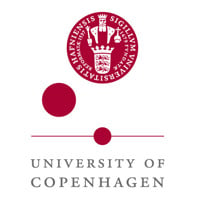Phosphorous Recovery Using Optimised Phosphate Binding Proteins
Position Details (PhD Program)
The element phosphorus is essential for all life on earth, and to maintain the intensive agriculture required to feed the world’s population, it is necessary to add phosphorus to the fertilizers that farmers use on their fields. The phosphorus used for fertilizer ends up as inorganic phosphate in wastewater via our food, or if it is not taken up by plants it is washed out of the fields and ends up in streams, lakes and the sea. Here it results in environmental problems such as the blooming of algae and oxygen depletion. The phosphate that ends up in wastewater or in the aquatic environment cannot be immediately collected and reused in agriculture. In this project, we wish to use engeneered phosphate binding proteins from bacteria to make a sustainable procedure that allows us to recover phosphorous, in the form of phosphate, from polluted lakes and wastewater. Based on our understanding of protein stability and protein function we will engineer proteins with tunable phosphate binding affinity and use an advanced bacterial generic selection method combined with next generation sequencing to improve the stability of our engeneered protein.
Required qualifications
Applicants should hold an M.Sc degree in chemistry, biophysics, biochemistry, nanotechnology or a closely related field. The candidate must have a strong background in protein science. Relevant expertise includes expression and purification of proteins, chemical modification of proteins, biophysical characterization of protein-ligand interactions and high-thoughput screening of protein stability. In addition to the above, it is preferable that the candidate has experience in quantitative analyses of data. Candidates must have good interpersonal and communication skills. Fluency in spoken and written English is a requirement.
Our group and research- and what do we offer?
The position is in Kaare Teilum’s group at the Structural Biology and NMR Laboratory, Department of Biology, University of Copenhagen. The Structural Biology and NMR Laboratory provides a strong, international environment for research in the structure, function and dynamics of biological macromolecules. The laboratory is host the cOpenNMR instrument center for biomolecular NMR spectroscopy and currently employs about 20 PhD students and Post Docs as well as a larger number of undergraduate students and guests. The research in the laboratory is highly interdisciplinary ranging from molecular cell biology over protein engineering to advanced biophysics and computational biology.
Principal supervisor is Professor Kaare Teilum, Department of Biology, [email protected]
The PhD programme
Qualifications needed for the regular programme
To be eligible for the regular PhD programme, you must have completed a degree programme, equivalent to a Danish master’s degree (180 ECTS/3 FTE BSc + 120 ECTS/2 FTE MSc) related to the subject area of the project. For information of eligibility of completed programmes, see General assessments for specific countries and Assessment database.
Terms of employment in the regular programme
Employment as PhD fellow is full time and for maximum 3 years.
Employment is conditional upon your successful enrolment as a PhD student at the PhD School at the Faculty of SCIENCE, University of Copenhagen. This requires submission and acceptance of an application for the specific project formulated by the applicant.
The terms of employment and salary are in accordance to the agreement between the Ministry of Finance and The Danish Confederation of Professional Associations on Academics in the State (AC). The position is covered by the Protocol on Job Structure.
Responsibilities and tasks in the PhD programme:
- Carry through an independent research project under supervision
- Complete PhD courses corresponding to approx. 30 ECTS / ½ FTE
- Participate in active research environments, including a stay at another research institution, preferably abroad
- Teaching and knowledge dissemination activities
- Write scientific papers aimed at high-impact journals
- Write and defend a PhD thesis on the basis of your project
We are looking for the following qualifications:
- Professional qualifications relevant to the PhD project
- Relevant publications
- Relevant work experience
- Other relevant professional activities
- Curious mind-set with a strong interest in understanding molecular self-assembly
- Good language skills
***************************************************************************
Application and Assessment Procedure
Your application including all attachments must be in English and submitted electronically by clicking APPLY NOW below.
Please include:
- Motivated letter of application (max. one page)
- Curriculum vitae including information about your education, experience, language skills and other skills relevant for the position
- Original diplomas for Bachelor of Science or Master of Science and transcript of records in the original language, including an authorized English translation if issued in another language than English or Danish. If not completed, a certified/signed copy of a recent transcript of records or a written statement from the institution or supervisor is accepted.
- Publication list (if possible)
- Reference letters (if available)
Application deadline:
The deadline for applications is 28th February 2023, 23:59 GMT +1.
We reserve the right not to consider material received after the deadline, and not to consider applications that do not live up to the abovementioned requirements.
The further process
After deadline, a number of applicants will be shortlisted for academic assessment by an unbiased expert assessor. You are notified, whether you will be shortlisted for assessment.
The assessor will assess the qualifications and experience of the shortlisted applicants with respect to the above mentioned research area, techniques, skills and other requirements. The assessor will conclude whether each applicant is qualified. The assessed applicants will have the opportunity to comment on their assessment. You can read about the recruitment process at https://employment.ku.dk/faculty/recruitment-process/.
Interviews with selected candidates are expected to be held in week 13.



 University of Copenhagen
University of Copenhagen 